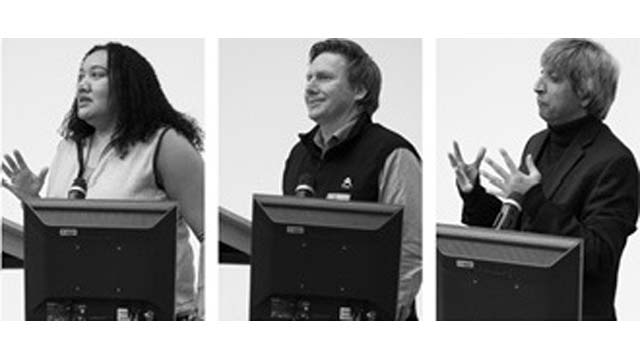
The notion of citizenship is sometimes taken for granted and in South Africa's 20 years of democracy it is far from being a settled concept.
Adam Habib, vice-chancellor and principal of the University of Witwatersrand, joined Laurence Piper, deputy dean of research in the Faculty of Economic Management Sciences at the University of the Western Cape, and Joy Owen, senior lecturer in the Department of Anthropology at Rhodes University, in trying to define what citizenship or citizenry is in South Africa.
Habib stated that South Africa should first understand what the principle of citizenship is. According to his understanding it is that, "A citizen must be prepared to accord others with a polity of what they themselves want." However, he says that this is a difficult principle to practice because of the high levels of inequality in South Africa where you find people demanding for others what they themselves would not accept especially when it comes to matters of labour standards and the minimum wage. "CEOs earn R17 million for themselves but when workers demand a paltry R12 500 they refuse," said Habib, referring to the Marikana and platinum mine strikes.
Piper, on the other hand, said, "Citizenship is about rights and not just legal status." The idea that South Africa, at 20 years, is now a mature democracy makes sense, he said, but only if one looks at the top of the power structures of those running the government. If you look at the bottom "from the perspective of citizens", the picture of democratic citizenship is "fragmented", Piper said. This is because South Africans have to pay to access some of the most basic services which are the rights of citizens as enshrined in the Constitution and the Bill of Rights - such as water, shelter, and education.
Consequently, explained Piper, inequality results because those who can afford the best of those basic citizen rights get the most and the best of them.
Owen made her point like an anthropologist, by telling a story. "I will tell you a short story because I want you to think critically about the power you wield within the SA polity," she said. When she used the term makwerekwere to refer to white American students, her class said it was wrong to do that especially to white people. They told her it was acceptable to refer to Africans as that "because they did not belong in their country". For Owen, citizenship is about the politics of belonging. To be a citizen you have to belong somewhere and somehow, she said.
Report by Meli Ncube
Photos: Tshiamo Maremela
Joy Owen, Laurence Piper and Adam Habib talk about what it means to be a South African citizen.
